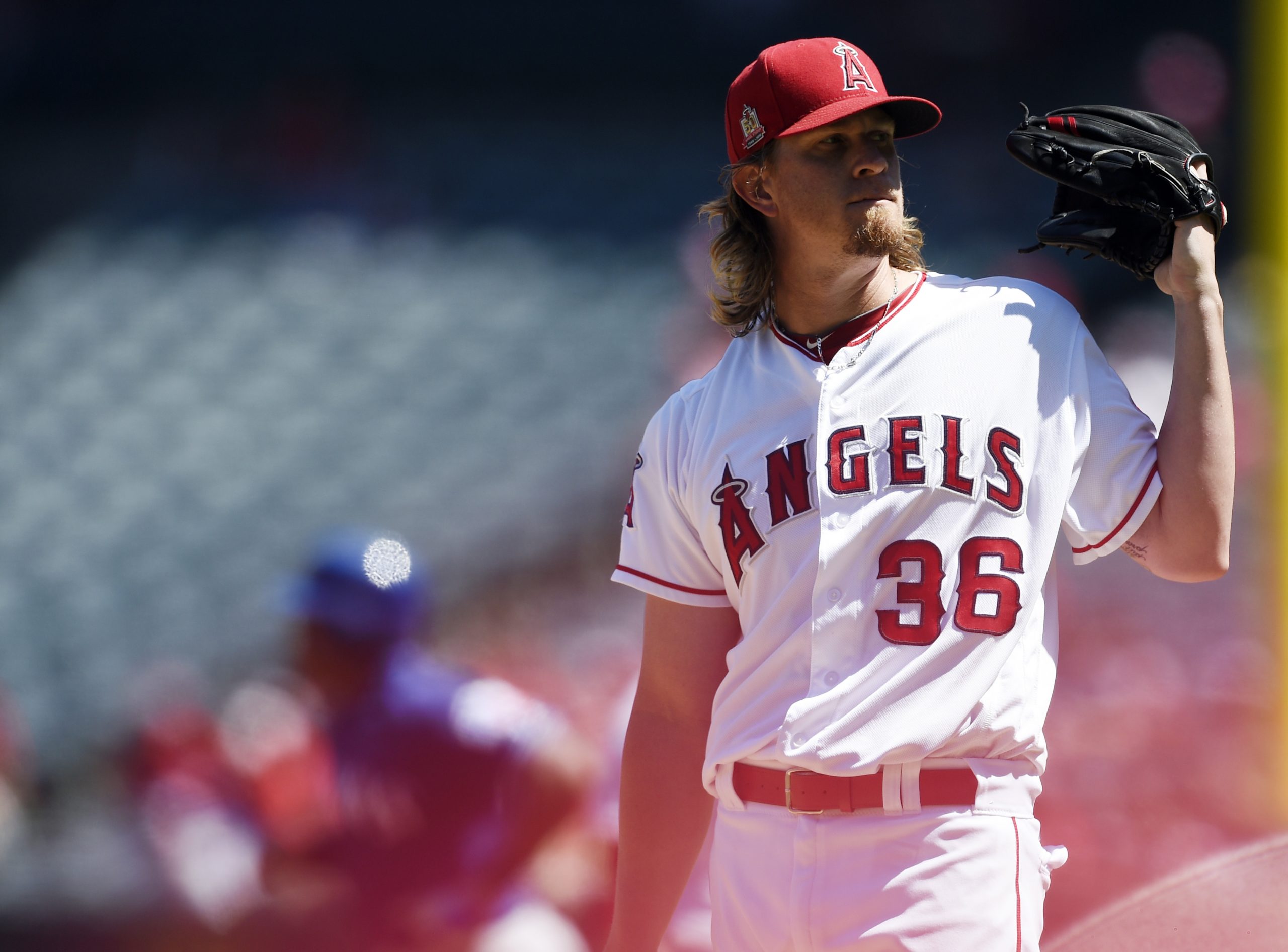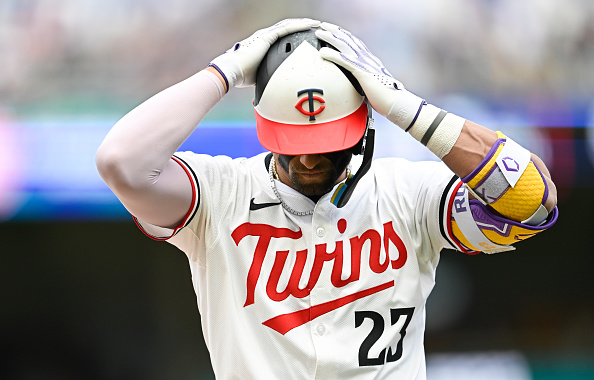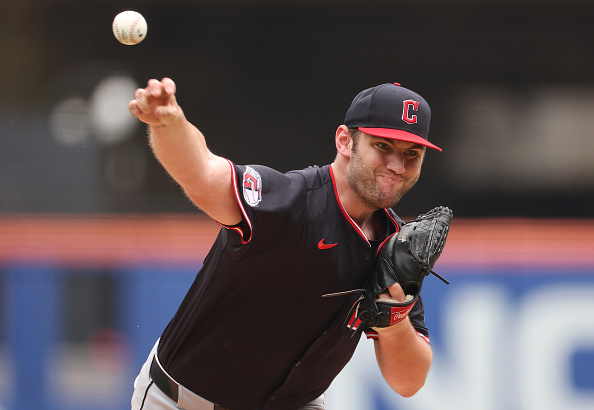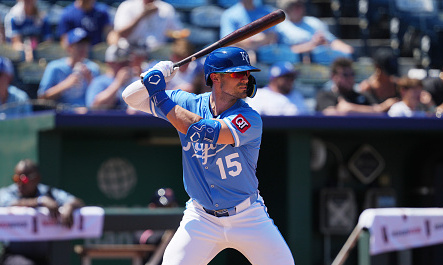The Angels sit on the cusp of their first top-10 MLB draft selection since the club successfully drafted top prospect Jo Adell with the 10th overall selection in 2017. Here’s our review of the top 10 Angels drafts in franchise history.
We’re going to split this list into two individual posts as we start by counting down from 10 through six on Tuesday before looking at five through one on Wednesday.
No. 10 – 1971 (Frank Tanana, Ron Jackson)
The Angels selected Frank Tanana in the first round (13th overall) and within three years, he was a dominant force in the Angels’ rotation. A three-time All-Star for the Angels and winner of 240 MLB games by the time his career ended in 1993, Tanana was a feared tandem with Nolan Ryan throughout the 1970s.
Ron “Papa Jack” Jackson was the Angels’ second-round selection who would go on to have a 10-year MLB career that included two stints with the Angels. Third-round selection, shortstop Billy Smith, would play 72 games for the Angels before spending the rest of his career in Baltimore and San Francisco.
No. 9 – 1995 (Darin Erstad, Jarrod Washburn)
The Angels scored with the first overall selection in the draft, picking Nebraska outfielder Darin Erstad. Erstad would go win three Gold Glove awards, appear in two All-Star games, and help the Angels win the 2002 World Series.
The Angels’ first selection in the second round was starting pitcher Jarrod Washburn from University of Wisconsin-Oshkosh. Washburn would post a 75-57 record across 183 starts for the Angels and would start five games for the Angels in their world championship postseason of 2002.
Pitcher Brian Cooper (fourth round), infielder Justin Baughman (fifth), and pitcher Greg Jones (18th) would eventually play for the Angels, too. The Angels also drafted high school infielder Robb Quinlan who went unsigned but would be re-drafted by the Angels four years later and become a mainstay off the Angels’ bench throughout the early 2000s.
No. 8 – 1997 (Troy Glaus, Scot Shields)
The Angels selected UCLA shortstop Troy Glaus with the third overall selection in the first round and the future Halos third baseman did not hesitate to make an impact. The four-time All-Star and two-time Silver Slugger award winner would eventually help lead the 2002 Angels to their first World Series championship, being named MVP for the series. Glaus would retire after playing 1,537 games and hitting 320 home runs across 13 MLB seasons.
38th-round selection and former Lincoln Memorial University pitcher Scot Shields would go on to be arguably the greatest middle reliever in franchise history. Shields would pitch in 491 regular season and 17 postseason games for the Angels in his 10-year career spent entirely with the Angels.
Other selections that would eventially appear in the majors included Matt Wise (sixth), Steve Green (10th), Doug Nickle (13th), Mike Colangelo (21st), and Josh Pearce (41st.)
No. 7 –1989 (Tim Salmon, Chad Curtis)
The Angels had high expectations for the college pitchers they selected in the first and second rounds as Kyle Abbott (ninth overall) and Joe Grahe (39th overall) each went on to have MLB careers of four or more seasons. However, it was quickly apparent to the Angels that it was a pair of college outfielders they selected out of Grand Canyon College that were cream of the crop from their 1989 draft.
Tim Salmon was selected in the third round and would win AL Rookie of the Year in 1993 before going on to be one of the most prolific hitters in franchise history. Salmon would amass a .282 average, 299 home runs, and 1,016 runs batted in during his MLB playing career spent entirely with the Angels. His fellow Grand Canyon outfield teammate, Chad Curtis, was drafted by the Angels in the 45th round and would beat Salmon to Anaheim in 1992, stealing 43 and 48 bases for the Halos in his first two seasons, respectively. Curtis would go on to win two World Series championships for the Yankees before his career ended in 2001.
Long-time infielders Joe Randa and Chris Gomez were also selected but went unsigned by the Angels in this draft. Pitchers Erik Bennett (fourth), Paul Swingle (29th), and Hilly Hathaway (35th) were drafted and signed by the Angels in 1989.
No. 6 – 2004 (Jered Weaver, Mark Trumbo, Martin Maldonado, Nick Adenhart)
Concerns over the ability to sign Scott Boras-represented pitcher Jered Weaver allowed him to fall to the Angels with the 12th overall selection in the 2004 draft. Once they signed Weaver, he went on to be one of the best starters in the league between 2009 and 2014. The three-time All-Star would win 150 games for the Angels in 12 seasons in Anaheim, finishing in the top five in Cy Young voting for three straight seasons (2010 through 2012).
The Angels drafted two college commits expected to go to school and convinced them to sign. Mark Trumbo was drafted in the 18th round and went on to two All-Star games; he has slugged 218 career home runs going in his career so far. They also landed pitcher Nick Adenhart in the 14th round and signed him with immediate stardom aspirations before his life ended tragically after his first start of the 2009 season.
Catcher Martin Maldonado was selected in the 27th round and, after beginning his MLB career in Milwaukee, would reach Anaheim via trade and earn a Gold Glove at his position in 2017.
Infielder Freddy Sandoval (eighth), and pitchers Bobby Casseveh (34th) and Erik Davis (47th) would also reach the majors for a cup of coffee.
Stay tuned for the top five Angels’ draft classes to follow on Wednesday.







